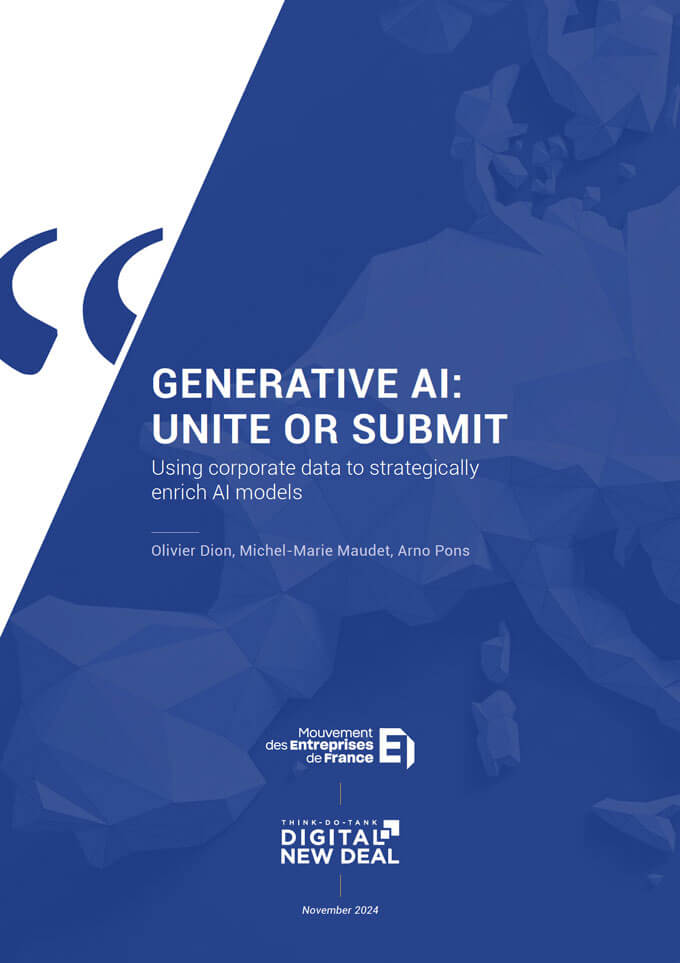We cannot risk allowing generative AI to further amplify the centralization and capture of value. We must prevent what we call “squared lock-in” (GenAI = Web2²). If we do not act, our companies could find themselves caught in a vise between Big Tech on one side, with their Big Clouds (hyperscalers), and now their Big AI on the other.
« Faced with this revolution, European companies have a choice to make: unite or endure. We firmly believe that by sharing our companies’ data, we can co-create a trustworthy, high-performance, and sovereign generative AI. »
We need to be realistic and focus our efforts on achievable goals.
The race to accumulate data for LLMs is over (Large Language Models are already standard products, according to Yann LeCun). There’s no point in trying to scrape all the web’s data as the giants do. Not only does this raise ethical and legal issues, but it also leads us astray. Europe must focus on a specific category of data — the most valuable kind and the only one Big Tech doesn’t yet have: the data from our corporates.
Capitalizing on corporate Data
We propose to capitalize on this private data by leveraging the European Data Strategy. This strategy aims to encourage data pooling and sharing among companies to create a common data market comparable to those in the U.S. and China, thereby enabling us to finally benefit from network effects. In practice, this involves participating in Data Spaces—trusted ecosystems that offer the right scale and governance to create generative AIs tailored to each sector. This is the best solution to avoid dependence on “Powered by OpenAI” or the counterproductive temptation of a model developed by a single company.
Promoting Data Spaces:
American studies have noted the emergence of a need for harmonized data layers essential for developing generative AI and observed that Europe has gained a lead with its Data Spaces initiatives under the Data Governance Act (data-sharing infrastructures with sector-specific governance). The report proposes building on this second competitive advantage and making these trusted data ecosystems the foundation of a trustworthy generative AI (performant, sovereign, and ethical).
Taking the Industrial Bet on LAM (Large Action Models)
In response to the Draghi report, which encourages taking bold technological bets, we propose focusing on Large Action Models (LAM). Rather than concentrating on language models (LLM), we believe Data Spaces should be used to create generative AIs dedicated to the autonomous execution of actions (agentification). These innovative models provide Europe with a strategic advantage through access to business data—a domain for which Data Spaces are particularly well-suited.
Following the example of the EONA-X Transport-Tourism Data Space with Gen4Travel
EONA-X has launched the Gen4Travel consortium to develop a LAM dedicated to the travel sector. This model will allow “Conversational Travel Assistants” of member companies such as Accor or ADP to become autonomous intelligent agents capable of automating complex tasks, such as booking or canceling flights and hotels in case of issues (including payment management). This approach protects the tourism sector from excessive disintermediation by an “agentified Booking or Tripadvisor.”
« Generative artificial intelligences based on a network of urbanized AI agents fed by trusted private data—that is the European ideal we propose to you »

